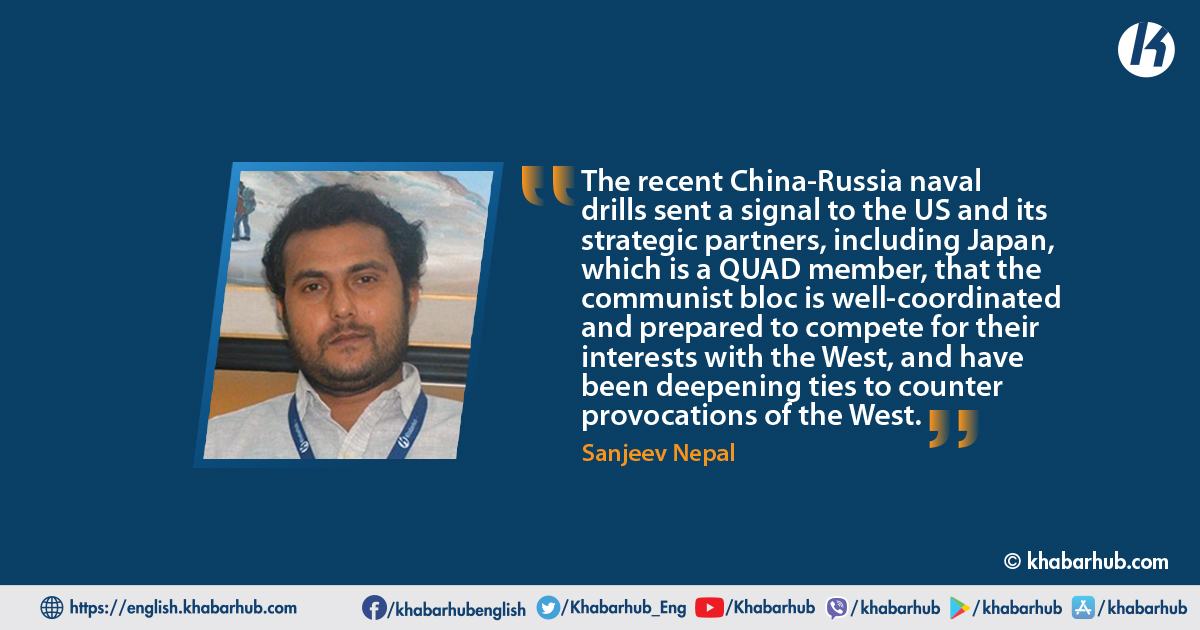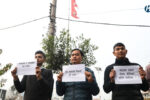Following the change of Israeli leadership in June this year, the new Israeli Prime Minister Naftali Bennett left for Sochi in Russia to hold his first official meeting with Russian President Vladimir Putin on October 22 (Friday).
The Bennett-Putin meeting, expected to last only a couple of hours, surprisingly ran longer, prompting the Israeli PM to make an ad-hoc plan to extend his stay in Sochi until the next day, October 23 (Saturday), mainly to avoid traveling on Shabbat, the Jewish day of rest. The meeting took place at Putin’s residence in the Black Sea resort town in Russia.
“The conversation went very long, lasted more than five hours, and was especially profound,” Bennett said on his Facebook. “Russia is a very important player in the region, a kind of neighbor of ours in the north. As such, relations with it are strategic, but also on an almost daily basis, we must maintain a direct and intimate line of discourse,” Bennett’s Facebook post read.

PM Bennett had left for Sochi at 5 am Friday to attend his 10 am meeting with the Russian president. He landed after three hours and was to fly back to Israel at 1 pm but the initially planned itinerary did not work out as the talks extended longer than anticipated to well over 2 pm. The two leaders apparently were developing a bond of trust.
Once a close ally of the United States, Israel is setting the tone for strategic cooperation with US adversary Russia. The importance of Russia-Israel strategic ties was also evident during former Israeli PM Benjamin Netanyahu’s 12-year rule. Netanyahu often attributed his personal relationship with Putin as the marker for Israel-Russia ties.
Meanwhile, as the new Israeli leadership was developing a bond with the Russian president, Israel was being flayed by the US, European Union member states and regional powers back home over its move to designate six Palestinian rights organizations as terror groups.
A Times of Israel report said the organizations had been receiving support and funding from the US and EU countries, among other donors. There is a regional outcry over Israel labeling the rights organizations as terror groups. The US also sought clarification from Israel in this respect.
Seemingly, Israel’s strategic ties with its previous allies are weakening as it pursues to solidify relations with Russia to establish a better foothold in the Levant.
Creation of AUKUS
Another example of how the tone for strategic cooperation is being set is the creation of AUKUS – a trilateral defense pact formed mostly to counter the rise of China. Australia, the United Kingdom, and the United States teamed up to announce the launch of AUKUS last month (September 15), leaving many of their former strategic partners in Europe and elsewhere out of the regional security equation.

The pact is set to allow Australia to build nuclear-powered submarines using US technology. Analysts also dubbed the AUKUS pact, which also covers Artificial Intelligence and the development of other technologies, as one of the biggest defense partnerships in decades. Following the pact, the US will be transferring its submarine technology to another country, for the first time, in its five-decade history.
However, the creation of AUKUS did not bode well with France, which lost a big-ticket deal with Australia for building 12 submarines. France got furious with Australia for canceling the submarine deal following the announcement of the trilateral defense agreement with the US and UK.
France, in the aftermath of the AUKUS stimulus, also called back its Ambassador to Australia. France has cooled down since, but the AUKUS pact might continue to haunt it in terms of its loss even in the future.
Similarly, Canada and New Zealand, which were part of the Five Eyes (FVEY) intelligence alliance with the AUKUS countries, would now be out of the loop. Several EU partners, including NATO, too might have felt betrayed by AUKUS.
While the aim of AUKUS pact is to counter China and maintain order in the Indo-Pacific region, it has thrown several nations across the world off balance, putting them in an uncomfortable position — making them cautious as not to explicitly choose sides between AUKUS and China.
China warms up to EU

With longtime German Chancellor Angela Merkel stepping down in Germany, the European Union along with Germany is scrambling to put into order its affairs. Merkel was a much stable figure contributing to prosperous German-China economic ties that also served as a reference for the EU-China partnership.
China overtook the US in becoming the EU’s largest trading partner in 2020. The pragmatic relations between the EU and China were largely due to Merkel’s unconventional approach towards China, which helped to promote China-Germany and China-EU relations.
In the past recent weeks, outgoing German Chancellor Merkel joined former Cuban leader Fidel Castro and ex-US President Richard Nixon in the hallowed élite of foreign leaders to be designated “old friend” by China’s communist rulers. China certainly hopes to advance its working relations with the EU based on the foundations laid down by Merkel over the years.
China, Russian warships circle around Japan
China and Russia have been cultivating closer ties in recent years amid a souring of their respective relations with the West.
Last week, China and Russia concluded their five-day joint naval drill in the Sea of Japan displaying a high level of strategic mutual trust and enhanced capability to fend strategic alliances such as AUKUS or the QUAD.

After the joint flotilla consisting of 10 warships from China and Russia transited the Tsugaru Strait of Japan on Monday, the vessels turned southeast, and were then seen heading south along the east of Japan on Wednesday and sailing to the west through islands to the south of Japan’s main island on Thursday, Japan’s Ministry of Defense Joint Staff said in a press release last Friday.
The recent China-Russia naval drills sent a signal to the US and its strategic partners, including Japan, which is a QUAD member, that the communist bloc is well-coordinated and prepared to compete for their interests with the West, and have been deepening ties to counter provocations of the West.

UK’s new foreign and security policy ‘tilt’ towards the Indo-Pacific and India’s growing prominence
After the departure of the UK from the EU (Brexit), the country in March this year revamped its defense, security, development and foreign policy to focus itself on the Indo-Pacific region for a host of reasons, including raising its presence and influence in the region.

The ‘Global Britain in a Competitive Age’ integrated review has stated that China posed the “biggest state-based threat” to the UK’s economic security and a “systemic challenge” to British security, prosperity, and values. In the same review, Britain recognized India as “the largest democracy in the world” and an “international actor of growing importance”, while naming the US as its most close strategic-ally and France and Germany as key partners.
The shift of UK policy pivots outside of the EU, which gets a scarce mention in the review.
In this context, the UK’s Foreign Commonwealth & Development Office (FCDO) created Indo-Pacific Directorate and raised India’s profile by appointing, for the first time, a top-level official primarily tasked with building relations with India (and the Indian Ocean).
In line with its revamped policy, Britain’s Foreign Secretary Elizabeth Truss reached India on October 22 and announced that the UK aimed to build closer defense and intelligence cooperation with India, which is on good terms with other UK allies such as Australia and the US.
Watch our video about my visit to India and the Gulf to build 🇬🇧’s economic and security ties. #GlobalBritain👇 pic.twitter.com/Ql4lTmDfIE
— Liz Truss (@trussliz) October 24, 2021
British Foreign Secretary timed her visit to India as Britain’s largest warship HMS Queen Elizabeth, the spearhead of the Carrier Strike Group (CSG) — a symbol of the UK’s world-leading defense capability, anchored in Mumbai. The Royal Navy’s CSG arrived at the coast of Indian financial hub Mumbai after having visited Japan, South Korea, Singapore and many other smaller countries in the region as a representation of the Indo-Pacific tilt in the UK’s foreign policy.

The CSG led by HMS Queen Elizabeth, which put on display the UK’s largest concentration of maritime and airpower, set sail from the UK in May to travel through over 40 countries in the Indo-Pacific region to establish a British defense effort in the region. It also participated in a week-long wargame with the Indian Navy in the Arabian Sea before heading to other predetermined destinations and finally returning home in December.
These recent happenings have clearly set the tone for long-term strategic partnerships among major global players to fulfill vital mutual interests, including sustaining the current world order, as China’s rise is intimidating everyone.









Comment